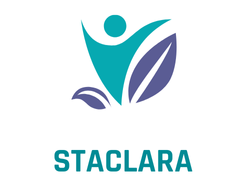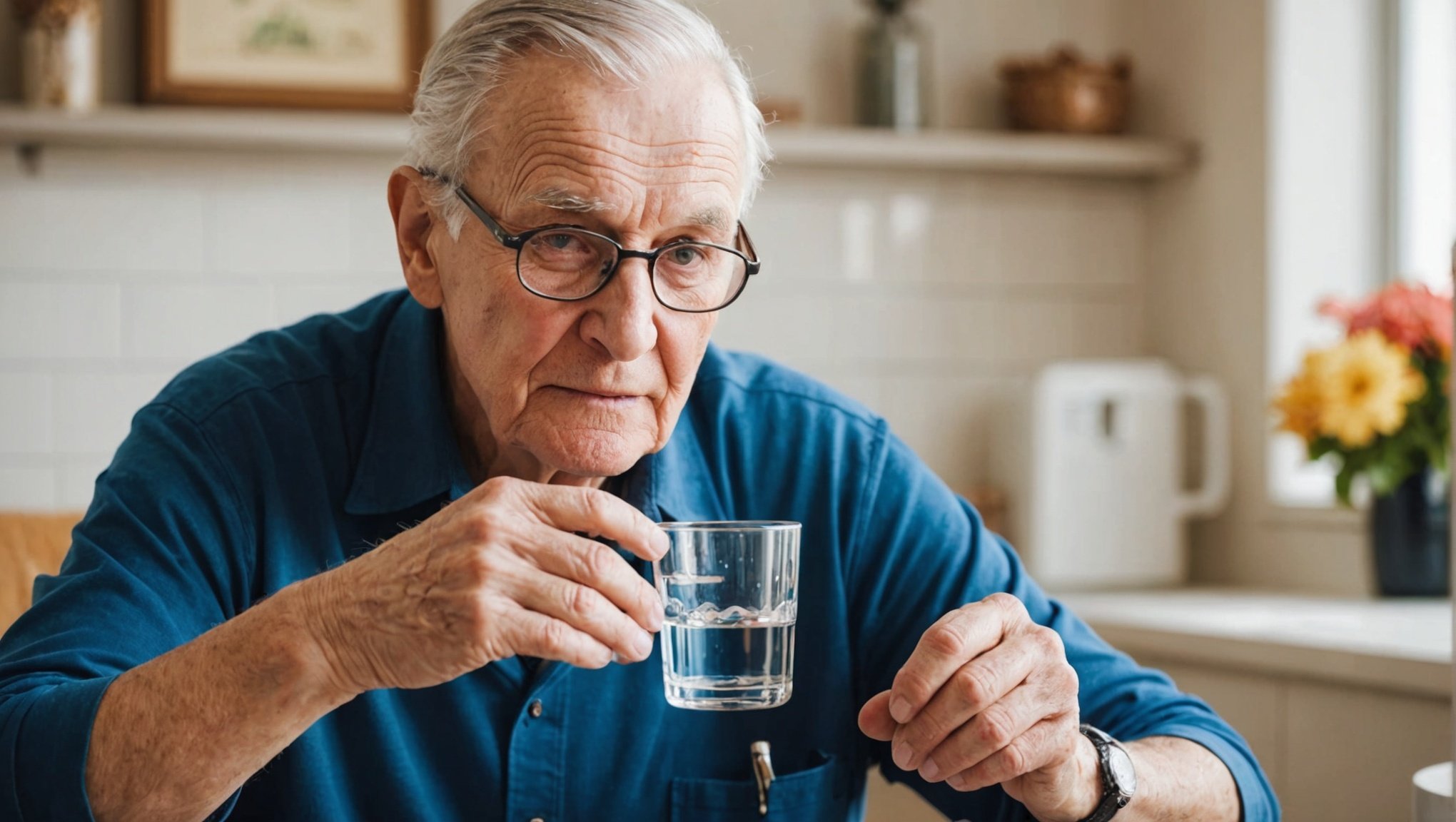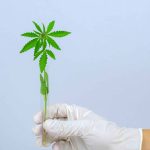As we age, the body's ability to maintain hydration diminishes, making seniors particularly vulnerable to dehydration. Recognizing early signs can be vital for their health. This guide highlights essential indicators— from dry skin to confusion— that you should monitor closely. Empower yourself with knowledge to keep your loved ones safe and thriving, ensuring they receive timely support. Understanding these signs is the first step toward preventing serious health issues.
Understanding Dehydration in Seniors
Dehydration in seniors is a critical health concern that often goes unnoticed. Elderly hydration is essential as it helps maintain bodily functions, including temperature regulation, joint lubrication, and nutrient transportation. As we age, our body's ability to conserve water diminishes, making hydration awareness crucial.
In the same genre : Key Components of an Effective Asthma Action Plan You Need to Know
There are several myths surrounding hydration in older adults. One common misconception is that seniors need less water than younger individuals. However, older adults often require more fluids due to physiological changes and the use of certain medications that may increase fluid loss. Another myth is that thirst is a reliable indicator of dehydration. In reality, the sensation of thirst diminishes with age, making it an unreliable cue for seniors.
Statistics highlight the prevalence of dehydration in the elderly. Studies show that approximately 20% to 30% of older adults experience dehydration, especially those in care facilities. This is concerning as dehydration can lead to severe complications, such as urinary tract infections, kidney stones, and even cognitive impairments.
Topic to read : Delicious Techniques to Lower Your Salt Consumption Without Compromising Taste
To combat dehydration in seniors, it's vital to promote hydration awareness. Encouraging regular fluid intake, offering a variety of beverages, and monitoring fluid consumption can help ensure that the elderly remain adequately hydrated. Understanding these aspects can significantly improve the quality of life for older adults.
Essential Signs of Dehydration
Identifying signs of dehydration in seniors is crucial for timely intervention. Physical symptoms in the elderly can manifest subtly yet have significant impacts. A dry mouth is often one of the early dehydration indicators. Additionally, decreased skin elasticity, where the skin does not bounce back quickly when pinched, is a classic sign. This loss of elasticity indicates the body's struggle to maintain adequate fluid levels.
Behavioral signs are also critical dehydration indicators. Seniors may exhibit confusion, which can often be mistaken for age-related cognitive decline. Lethargy and irritability are other symptoms in the elderly that suggest dehydration. These behavioral changes can affect daily functioning and overall well-being.
Urinary changes serve as another set of dehydration indicators. Observing the color, frequency, and volume of urine can provide insights. Dark urine often signals dehydration, as the body attempts to conserve water by concentrating urine. A decrease in frequency and volume also suggests inadequate fluid intake.
Recognising these signs of dehydration is essential for caregivers and family members. By understanding these symptoms in the elderly, proactive measures can be taken to ensure seniors remain hydrated, thus preventing more severe health complications.
Risk Factors for Dehydration in Older Adults
Understanding the dehydration risk factors is crucial in addressing the elderly health risks associated with inadequate hydration. Several hydration vulnerabilities arise from age-related physiological changes. As people age, their bodies naturally lose efficiency in conserving water, and the sensation of thirst diminishes, making it harder to recognise the need for fluids.
Medical conditions can further exacerbate these risks. For instance, diabetes is a common ailment in seniors that can lead to increased urination, thereby contributing to fluid loss. Similarly, kidney issues can impair the body's ability to manage fluid balance, increasing the likelihood of dehydration. These health conditions necessitate careful monitoring of fluid intake to mitigate the risk.
Medications also play a significant role in dehydration among older adults. Diuretics, often prescribed for conditions like hypertension, increase urine production, leading to potential fluid depletion. Other medications, such as laxatives and certain antidepressants, can also contribute to dehydration by altering the body's fluid retention capabilities.
Addressing these hydration vulnerabilities requires a comprehensive approach, including regular health check-ups, medication reviews, and personalised hydration strategies. By understanding and mitigating these risk factors, caregivers can better support the health and well-being of older adults.
Preventative Measures for Caregivers
Maintaining proper hydration prevention is a critical responsibility for caregivers. Implementing effective caregiver strategies can significantly enhance the well-being of seniors. Ensuring regular fluid intake is paramount. Caregivers should encourage seniors to drink fluids consistently throughout the day, rather than waiting for signs of thirst, which may not be reliable.
Creativity in promoting hydration can make a significant difference. Offering a variety of beverages can cater to different preferences, making it easier for seniors to stay hydrated. Flavoured water, herbal teas, or even broths can be enticing alternatives to plain water. These options not only provide hydration but can also offer additional nutrients, enhancing their appeal.
Monitoring and record-keeping are essential components of maintaining hydration. Caregivers should keep a daily log of fluid intake to ensure seniors are consuming adequate amounts. This record can help identify patterns or issues in hydration habits, allowing for timely adjustments.
Caregiver strategies should also include regular reminders and encouragement for seniors to drink fluids, particularly during meals or medication intake. By employing these preventative measures, caregivers can play a pivotal role in safeguarding the health of older adults, ensuring they remain well-hydrated and reducing the risk of dehydration-related complications.
When to Seek Medical Help
Recognising when to seek medical advice for dehydration is crucial, especially for seniors. Certain symptoms indicate severe dehydration and require immediate attention. For instance, if an elderly person experiences dizziness, rapid heartbeat, or extreme confusion, these are critical signs that medical intervention is necessary. These symptoms suggest the body is under severe stress due to inadequate fluid levels.
Signs of severe dehydration also include a drastic drop in blood pressure, fainting, and a lack of urination for over eight hours. These symptoms highlight the body's inability to maintain essential functions, necessitating urgent care. In such cases, it's vital to contact a healthcare professional or visit an emergency room promptly.
Emergency care guidelines emphasise the importance of swift action. When dehydration reaches a critical level, intravenous fluids may be required to quickly restore the body's fluid balance. This intervention can prevent further complications, such as organ damage or severe electrolyte imbalances.
Timely medical intervention is essential in preventing the progression of dehydration to life-threatening stages. By understanding and recognising these severe symptoms, caregivers and family members can ensure that seniors receive the necessary care, safeguarding their health and well-being.
Expert Opinions on Dehydration Management
Understanding expert advice on hydration is pivotal in managing dehydration among seniors. Geriatric healthcare professionals emphasise the importance of personalised hydration strategies. They recommend assessing individual needs based on health conditions, medications, and daily activities to ensure adequate fluid intake. This tailored approach helps maintain optimal hydration levels, reducing the risk of complications.
Nutritionists provide valuable insights into hydration best practices. They suggest incorporating a variety of fluids, including water, herbal teas, and hydrating foods like fruits and vegetables. This diversity not only supports hydration but also enhances nutrient intake, contributing to overall well-being. Nutritionists also advise setting reminders for regular fluid consumption, especially for seniors with diminished thirst sensation.
Case studies highlight the effectiveness of comprehensive hydration strategies in improving seniors' health. For instance, in a care facility, implementing a structured fluid intake schedule significantly reduced the incidence of dehydration-related issues. This approach involved regular monitoring, encouraging fluid-rich snacks, and educating staff and residents on the importance of hydration.
These healthcare recommendations underscore the necessity of a proactive and informed approach to managing dehydration. By following expert guidance, caregivers can better support seniors in maintaining proper hydration, thus promoting their health and quality of life.
Statistics and Research Findings
Recent research on elderly hydration has shed light on the critical issue of dehydration among seniors. According to recent hydration studies, approximately 20% to 30% of older adults are affected by dehydration, a statistic that is particularly concerning for those in care facilities. This prevalence is linked to age-related changes and the impact of medications that exacerbate fluid loss.
Dehydration statistics reveal significant health outcomes for seniors. Studies indicate that even mild dehydration can lead to severe complications such as urinary tract infections, kidney stones, and cognitive impairments. These findings underscore the importance of maintaining adequate hydration levels to prevent such adverse health effects.
Comparisons of hydration levels among different age groups highlight a stark contrast. While younger individuals often have more effective hydration mechanisms, older adults face physiological challenges that impede their ability to stay hydrated. The sensation of thirst diminishes with age, making it an unreliable indicator for seniors. This difference necessitates tailored hydration strategies to address the unique needs of the elderly.
In conclusion, the combination of dehydration statistics and research findings emphasizes the urgent need for increased awareness and proactive measures in managing hydration among seniors. By understanding these insights, caregivers and healthcare professionals can better support the well-being of older adults.
Resources for Caregivers and Families
Navigating the complexities of elderly care requires access to reliable caregiver resources. Various reputable organisations offer invaluable support, focusing on enhancing the quality of life for seniors. These include the National Council on Aging and the Family Caregiver Alliance, both providing comprehensive guidance and support for families.
To aid in maintaining proper hydration, several hydration tools and apps are available. These digital resources help caregivers track fluid intake and remind seniors to drink regularly. Apps such as Hydration Reminder and WaterMinder are particularly useful, offering customisable alerts to ensure consistent hydration throughout the day. These tools can be instrumental in preventing dehydration by providing timely notifications and tracking progress.
Educational materials play a crucial role in raising awareness about elderly hydration. Families can access a wealth of information through online platforms and workshops. These resources offer insights into the importance of hydration, signs of dehydration, and effective strategies to encourage fluid intake. By equipping caregivers and families with the necessary knowledge, these materials empower them to make informed decisions, ultimately enhancing the well-being of older adults.
By leveraging these resources, caregivers can better support their loved ones, ensuring they remain healthy and hydrated.











